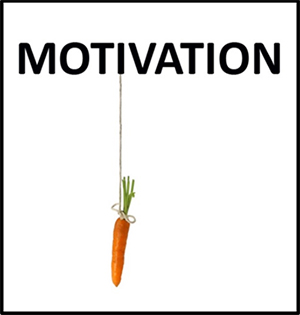Patient Success Guide
Here at Healthy Living Dallas, we want to help you however possible to meet your health and weight goals. We want to help you develop lifestyle changes that can be implemented both inside and outside of the home long-term. Achieving a healthy weight or a specific health goal isn’t just about a “dieting” or going on a short term program. It is about an ongoing lifestyle that includes long-term changes in daily eating, exercise, sleep, and stress management habits. Losing weight and implementing healthier habits is not always easy and will take commitment every day. Below is a guide to help get you on the road to better health and increase your

Utilize Our Resources
There are 336 hours (20,160 minutes) in a two-week period. If you were to be a patient and come into Healthy Living Dallas every other week for a 30 minute appointment, this only calculates to .001% of that two week period time. This appointment time is valuable when it comes to obtaining labs, a body impedance analysis, and addressing questions regarding lifestyle modifications, but when making permanent lifestyle changes it is going to take more than .001% of your two week period to think about your health, plan meals, engage in exercise, etc. Because we are not available to you 24/7 we have created resources that can be utilized at any time of the day to aid in helping you achieve your health goals. Please utilize these resources to obtain recipes, fitness motivation, and healthy tips every day of the week!! If your mind is focused on health 100% of the time you are more apt to make changes and keep those changes in place long term!
Determine Your Readiness Level
Are you ready to make changes? There are 5 stages of “readiness” which include pre-contemplation, contemplation, preparation, action, and maintenance. Readiness level exists along a continuum of steps or stages and can change very rapidly, sometimes from day to day or week to week. Depending on your level of readiness different motivational intervention strategies and overall goals will be more or less effective. For example, “pre-contemplators” usually resist change. They may change if there is enough constant external pressure, but once the pressure is removed, they quickly revert. These individuals may be more successful if a family member comes to appointments with them or may benefit from the Dietitian or clinic staff calling weekly for updates, to provide encouragement, or to answer questions. On the other side of the spectrum, someone in the “action” stage may be logging their food, staying on top of ordering supplements, and only coming in for appointments every 6-8 weeks and may need a different level of external help.

Get Others Involved
When making the conscious decision to live a healthier lifestyle, it can be hard to do this if the people around you are eating unhealthy foods and making unhealthy decisions. It is important to find an accountability partner to go through this lifestyle change with, or someone who can hold you accountable for a specific goal. Consider involving your spouse, your family, or your co-workers in making healthier choices. Think about when you struggle the most- if it’s sweets in the breakroom at work, your co-workers will be your best accountability. If it is Friday night drinks with your friends, bring them alongside. Don’t be afraid to share why you want to make changes- if you’re scared about getting diabetes, or your cholesterol levels are high, or you really want to be a certain size before a big event coming up, let these people know. If they understand your motivation, they’re more likely to support you. If you are shopping and cooking for the whole family you won’t have to worry about keeping unhealthy snack and meal options in the house for the rest of the family because you will all be eating the same food items. For more information about involving the whole family in healthy changes, see “Get Your Kids Involved” below. Many times individuals are more apt to stick with an exercise regimen if they know that someone else will be meeting them to walk or lift weights due to not wanting to let that individual down. Push each other to make progress each week. When it comes to scheduling social events it is just as important to prioritize your workouts and nutrition goal and plan them into your calendar as well. Write down what you are going to eat for the week starting on Sunday and physically write down what time each day you plan to work out and for how long. Surround yourself with individuals who also have the goal to improve their health by eating healthier, focusing on positive changes, and like to be active! “You can tell a lot about who someone is by who they choose to hang out with”. If you hang out with positive people, you are more likely to focus on positive changes. If you hang out with people who like to drink alcohol, you are probably more likely to drink alcohol. If you hang out with people who like to exercise and be outdoors, you are more likely to engage in activities outdoors when you are together.

Get Your Kids Involved
Here’s an area that our patients struggle with often. It’s not a popular choice to take candy/chocolate/processed foods out of the house when you begin a healthy lifestyle change, especially if you have kids. But let’s take a minute to think through why you’re making health changes. Did you just get diagnosed with diabetes? Are you obese? Do you have high cholesterol and inflammation? Consider sharing this information with your kids. Talk as a family about why you’re making health changes. Not having these foods present in the house when your kids are used to these daily is often a hard adjustment for many children but there are ways to make the adjustment easier. Consider letting them have 1-2 snacks per week that don’t fit on your dietary recommendations. You could try what Stephanie does in her house- at the beginning of each month, each family member gets to choose 1 treat- sometimes it’s a pint of ice cream, sometimes it’s a small bag of cookies or candy or a 2 Liter bottle of soda- whatever that person wants. Each person gets a different item and nobody else in the family is allowed to eat it. When it runs out, so does the treat for the month. This allows you to begin controlling the amount of unhealthy foods coming in at home and teaching children (and yourself!) the lesson of savoring food, of rationing unhealthy foods (if you eat three pieces of candy three times a day it won’t last very long). The goal of a healthy lifestyle isn’t to never eat unhealthy foods again. It’s to relearn our thought patterns about foods- why do we eat dessert after every meal? What does healthy really mean? Explain to them that if they don’t make changes in their health, they’ll be at the point you are someday and will have to cut out unhealthy foods entirely. If you’ve been a patient of ours for long you’ve probably already figured out that a large part of our job at Healthy Living is to retrain how you think about your food relationship that you learned as a child. Use your authority as a parent to begin guiding your children’s mind to healthy change while you still have a captive audience! Use your lifestyle change as a teaching tool to help your children learn more about food/activity choices and health consequences. They’re never too young to learn! Need help on introducing these conversations to your kids? Ask our dietitian!

Implement the Change in Phases
It is nearly impossible to go from 0-100 when it comes to health goals and to maintain that long-term. At Healthy Living Dallas we believe in SMART goals, which stands for: Specific, Measureable, Attainable, Realistic and Timely. It is our job together, as a team, to come up with short-term goals that will in turn lead to completion and success of your long-term goal. When you break a goal into smaller “benchmarks” you are less likely to be overwhelmed and give up on your overall goal. We want you to be involved with saying what you want to achieve and the intensity in which you want to achieve it. “Give a man a fish and you feed him for a day; teach a man to fish and you feed him for a lifetime.” We believe that when you take on a role in making decisions about their health, you are more likely to stick to the healthy changes long-term and reap the benefit of knowing you took charge in their own life and well-being.

Discuss the Rationale Behind the Need for Change
At Healthy Living Dallas we are avid believers in ongoing education when it comes to our health. We don’t just want you to know the “right” health decisions to make, we want you to understand why we are suggesting the food, exercise, supplements, and etc. that we are. We want you to be informed on why it is important for a certain change to occur but also the benefits from that change. We want the environment at Healthy Living Dallas to be open so that you feel comfortable voicing your concerns and contributing your thoughts, views, and opinions in bettering our care for you. We will discuss (evaluate, review, and report) the changes that occur each appointment based on lab results, BIA, and other anthropometric data; it is your job as the patient to ask questions on what you are confused on and if there is something you wish to learn more about.
Identify Strengths and Weaknesses
In order to use your appointment times to maximum efficiency, it is helpful for you to identity and vocalize both strengths and weaknesses. Consider your strengths from both your own point of view, as well as an outsider’s point of view. Ask yourself “What is it that I do well?” “What makes me different than other people?” We may not need to focus a lot of time on areas that you have received education on in the past. For example, if you handle stressful situations well and always rate your stress level a 2 on a scale of 1-10, we may not spend much time on stress. On the other hand, it is also important to identify any areas of weakness. Ask yourself if you are lacking any skills that may make achieving your goals difficult? Have you ever tried making healthy changes in the past but failed? What did you find difficult? Do you lack any skills or have any particular areas capable of improvement? These are the areas we will spend more time on. For example, if you have never cooked a meal before or planned a menu but instead eat the majority of your meals out at restaurants, we will spend more time talking about preparing meals at home, quick snacks to keep available at home, and may discuss what cooking entails. If you don’t understand how to navigate the grocery store or to read a food label, we want to know so that we can help get you the tools you need to succeed!

Identify Reasons Behind the Change
Losing weight is often not a sufficient motivation to make sustainable changes. At Healthy Living Dallas we want you to dig a little deeper for us. Why do you want to lose weight? Some examples may be: I want to live longer for my children, I want to improve my quality of life, I want to reverse my diabetes, I am tired of people looking at me because of my weight, I don’t want to keep buying two airplane tickets when I go on a trip, and I want to save money on healthcare from reduced hospital stays, medications, and health/life insurance. If your emotions and motivations are based solely on a number on a scale, any fluctuation can become frustrating and can quickly lead to feelings of failure and take the focus off the positive changes you have already made. Once you reach a weight goal if that was the only benchmark in sight, it will be harder to maintain the healthier changes because you are no longer working for something. We know this process isn’t easy. At Healthy Living Dallas we’ve noticed that our patients who have taken the time and have dealt honestly with their motivations have had better success in a shorter amount of time and are our patients who do their best at maintaining their goals.

Don’t Forget!
This is YOUR journey to better health and the staff here at Healthy Living Dallas wants you to feel confident in your capabilities for making life-long changes to improving your quality of life. Therefore, we believe YOU play an important role in achieving optimal health in your own life. Reflect on some of the points outlined above and let us know how we can help you in achieving all your health goals. You don’t have to come up with solutions to the answers above- we’ll work with you on that. Anybody who tells you that achieving your weight or health goals is easy is lying to you. We won’t promise that it will be easy- we’ll be reframing how you think about and perceive food, why you make the decisions you make with your time and resources and how your deepest motivations drive what you do- none of that is easy. But we will guarantee you that we’ll be there with you every step of the way. If you do your part, we’ll do ours. It may not come fast, it definitely won’t come easy, but in the end, you’ll not just be transforming your body. You’ll have transformed the mindset that got your body to where you are today. And that is true success- a success that will last a lifetime. Ready to get started? We are too!

Dallas
3800 San Jacinto
Dallas, TX 75204
(214) 827-8777
Driving DirectionsHours:
Monday, Wednesday,
Friday: 8:00 a.m. - 11:00 a.m.
Tuesday: 4:00 p.m. - 7:00 p.m.Grapevine
823 Ira E. Woods Avenue
Grapevine, TX 76051
(214) 827-8777
Driving DirectionsHours:
Thursday: 1:30 p.m. - 5:00 p.m.



 Pinterest
Pinterest Facebook
Facebook Healthy Living Blog
Healthy Living Blog Healthy Living Recipes
Healthy Living Recipes Educational Videos
Educational Videos


